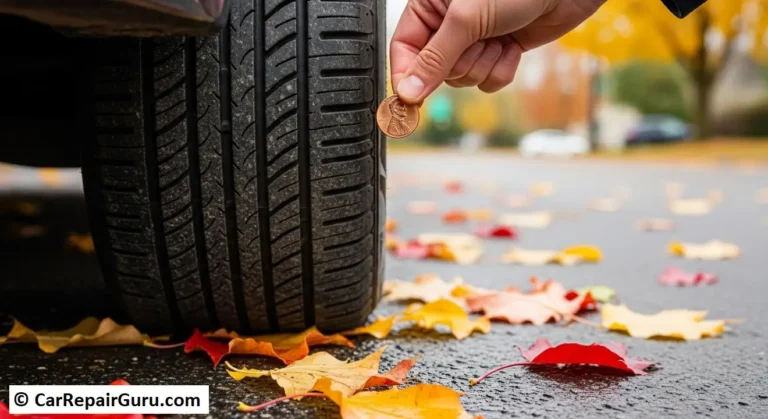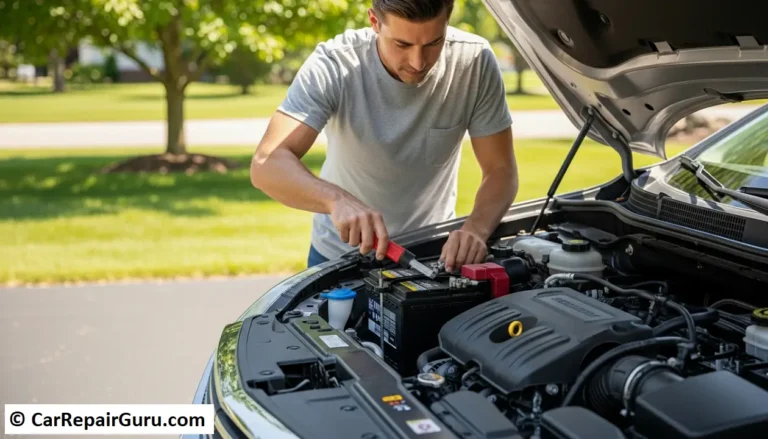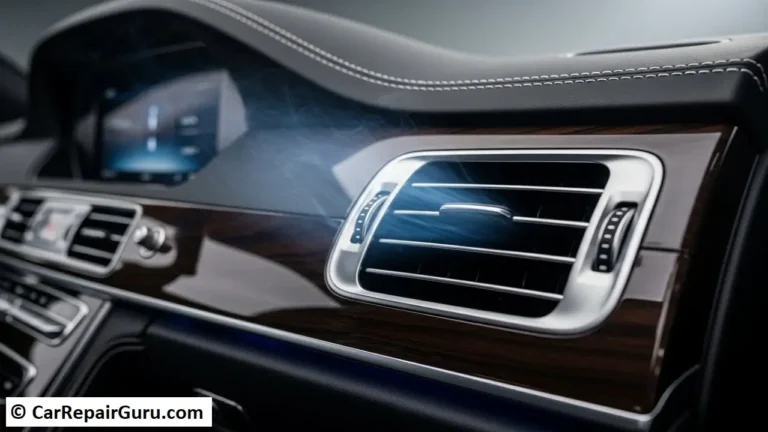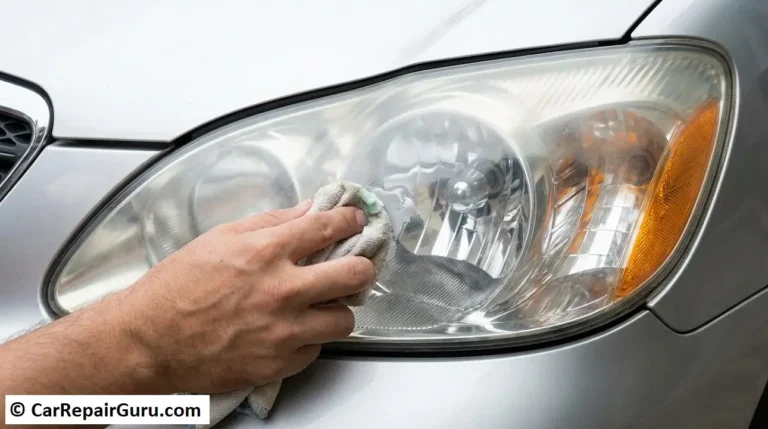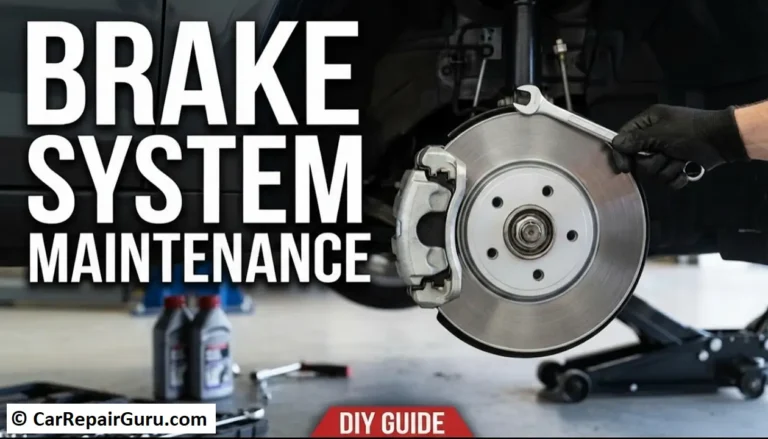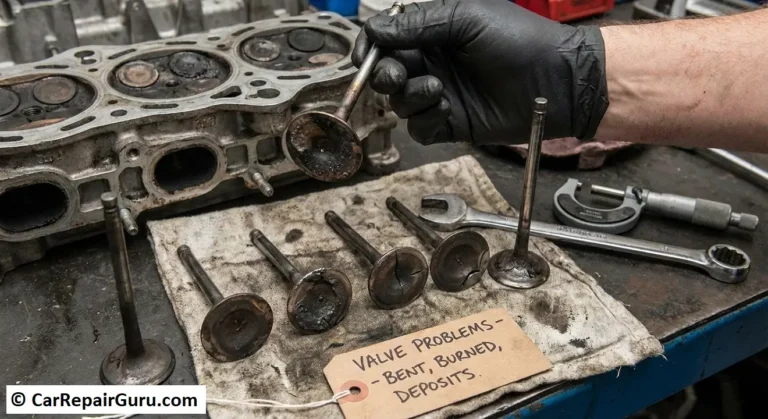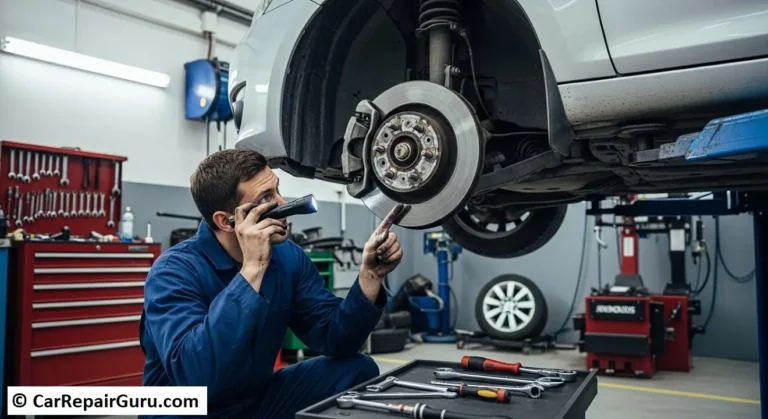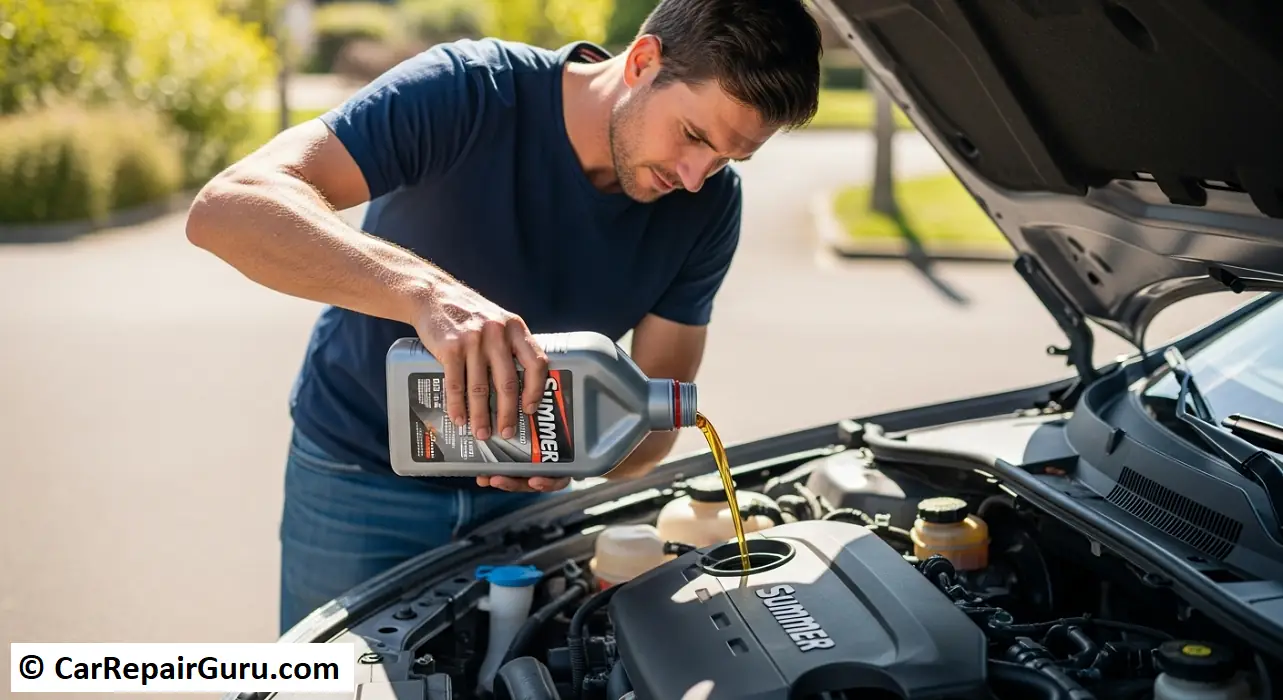
Summer is finally here. You’re dreaming of sunny skies, family vacations, and long-awaited road trips. But while you’re planning the fun, have you considered what the soaring temperatures are doing to your car? The summer heat, combined with stop-and-go traffic and long highway drives, puts an incredible amount of stress on your vehicle’s most vital component: the engine.
Fortunately, one of the most effective, affordable, and simplest ways to protect your engine is already part of your car’s routine maintenance. A timely summer oil change isn’t just a suggestion on a checklist; it’s your engine’s first line of defense against the season’s most damaging effects.
This guide will walk you through exactly how heat attacks your engine oil and the critical reasons why this one service is the most important investment you can make in your vehicle this season.
- How Summer Heat Attacks Your Engine’s Oil
- Increased Thermal Breakdown
- Accelerated Oxidation and Sludge Formation
- Faster Evaporation and Oil Burn-Off
- 5 Critical Reasons for a Pre-Summer Oil Change
- Listen to Your Car – 4 Warning Signs Your Oil is Failing in the Heat
- DIY vs. Pro – Who Should Handle Your Summer Oil Change?
- It’s Not Just Oil – Other Critical Fluids Your Car Needs for Summer
- Choosing the Right Oil for Hot Weather
- Understanding Oil Viscosity (e.g., 5W-30)
- Synthetic vs. Conventional Oil in Summer
- Protect Your Engine and Your Summer Plans
- Frequently Asked Questions (FAQ)
- How often should I change my oil in the summer?
- Should I get an oil change before or after a long road trip?
- Can old oil really make my car overheat?
How Summer Heat Attacks Your Engine’s Oil
To understand the importance of a summer oil change, you first need to know what’s happening under your hood when the asphalt starts to sizzle. Engine oil is a complex fluid with a tough job, and high heat is its worst enemy.
Increased Thermal Breakdown
Think about what happens when you put butter in a hot pan—it thins out and loses its consistency. Engine oil behaves in a similar way. This process is called thermal breakdown. As your engine runs hotter in the summer, the oil thins out, losing its optimal viscosity (its ability to flow and lubricate). When oil is too thin, it can’t create a strong enough protective film between moving metal parts, leading to increased friction, premature wear, and potential engine damage.
Accelerated Oxidation and Sludge Formation
Heat acts as a catalyst, speeding up the chemical reaction of oxidation. When oil oxidizes, it degrades, forming corrosive acids and a thick, tar-like substance known as engine sludge. This sludge is a silent killer for engines. It can clog narrow oil passages, starving critical components like camshafts and bearings of lubrication. This is a primary reason why a regular oil change for hot weather is so vital—it removes these contaminants before they can build up and cause a catastrophic failure.
Faster Evaporation and Oil Burn-Off
Did you know that engine oil can evaporate? In extreme heat, older or lower-quality oil can literally burn off or vaporize, causing your oil level to drop even if you don’t have a leak. Driving with a low oil level is one of the fastest ways to destroy an engine, as it leads to severe friction and metal-on-metal contact.
5 Critical Reasons for a Pre-Summer Oil Change
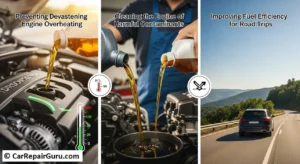
Now that you know how heat degrades oil, here are the tangible benefits you get from scheduling that service before the peak of summer hits.
1. Prevents Devastating Engine Overheating
While your radiator and coolant are the primary cooling system, your engine oil plays a huge supporting role. It circulates through the engine, absorbing and carrying heat away from the hottest parts, like the pistons and bearings. Old, broken-down oil is terrible at transferring heat. Fresh, clean oil, however, does this job efficiently, helping your entire cooling system work better and significantly reducing the risk of engine overheating during a traffic jam or on a long uphill climb.
2. Ensures Proper Lubrication and Reduces Wear
This is oil’s main job. A pre-summer oil change ensures your engine is filled with oil that has the correct viscosity to withstand high temperatures. This creates a resilient lubricating barrier that prevents metal surfaces from grinding against each other. This is especially important for common summer activities like towing a boat or trailer, which put extra strain and heat on the engine.
3. Cleans the Engine of Harmful Contaminants
Think of your oil filter and oil as the garbage collectors for your engine. They trap and suspend dirt, metal particles, and the sludge we mentioned earlier. An oil change is like taking out the trash. It removes all those harmful contaminants, giving your engine a fresh, clean environment to operate in.
4. Improves Fuel Efficiency for Road Trips
This is a benefit everyone can appreciate, especially with fluctuating gas prices. A clean, well-lubricated engine runs with less friction. Less friction means the engine doesn’t have to work as hard to produce power. This directly translates to better gas mileage, saving you money on every tank—a huge plus for your summer road trip preparation.
5. Provides Peace of Mind and Extends Engine Life
Ultimately, a timely oil change is an investment in your peace of mind. Knowing your engine has the best possible protection allows you to focus on the road and your destination, not on worrying about breaking down. Consistent oil changes are the single most important factor in extending the life of your engine, ensuring your car remains reliable for many summers to come.
Listen to Your Car – 4 Warning Signs Your Oil is Failing in the Heat
Your car will often give you hints that its oil is struggling. Here’s what to look and listen for:
- The Dipstick Tells a Story: Pull the dipstick (when the engine is cool). Fresh oil is translucent and amber-colored. If your oil is dark black, feels gritty between your fingers, or is below the “add” line, it’s time for a change.
- Unusual Engine Noises: If you start hearing a new ticking, clattering, or knocking sound, it could be a sign that your oil isn’t lubricating the valvetrain or engine bearings properly.
- Dashboard Warning Lights: Never ignore the oil pressure light (which often looks like an old-fashioned oil can). If it comes on, pull over safely and turn off the engine immediately. The check engine light can also be triggered by oil-related issues.
- A Rise in Temperature: If you notice your engine’s temperature gauge creeping higher than normal, especially in traffic, your old oil could be a contributing factor because it’s failing to help cool the engine effectively.
DIY vs. Pro – Who Should Handle Your Summer Oil Change?
For many, a DIY oil change is a satisfying and cost-effective task. If you have the right tools, knowledge, and a safe way to dispose of the old oil, it can be a great option.
However, a professional service is a smarter investment, especially for a pre-summer checkup. Here’s why:
- Expertise: A technician will use the exact type and amount of oil your manufacturer specifies.
- Multi-Point Inspection: This is the biggest benefit. A professional oil change service almost always includes a free inspection of your tires, brakes, belts, hoses, and—most importantly for summer—your coolant level. They can spot a small problem before it leaves you stranded on the side of the road.
- Convenience: It saves you the time, mess, and hassle of dealing with used motor oil disposal.
For the confidence that your entire vehicle is ready for the rigors of summer, a professional service is hard to beat.
It’s Not Just Oil – Other Critical Fluids Your Car Needs for Summer
While oil is the star of the show, it’s not the only fluid that suffers in the heat. When you get your oil changed, make sure these are checked too:
- Coolant (Antifreeze): This is your engine’s primary defense against overheating. Ensure it’s at the proper level and in good condition.
- Transmission Fluid: Heat is the #1 killer of automatic transmissions. Towing and heavy loads can cause this fluid to break down quickly, leading to expensive repairs.
- Brake Fluid: This fluid absorbs moisture over time, which lowers its boiling point. In heavy summer braking (like driving down a mountain), this can lead to a soft brake pedal or even brake failure.
Choosing the Right Oil for Hot Weather

With so many options on the shelf, picking the right oil can feel overwhelming. Here’s what you need to know.
Understanding Oil Viscosity (e.g., 5W-30)
While some old-school wisdom suggests using a “thicker” oil in summer, most modern engines are designed to use a specific multi-grade oil year-round. The single most important rule is to always use the viscosity recommended in your vehicle’s owner’s manual. It’s engineered specifically for your engine.
Synthetic vs. Conventional Oil in Summer
If you want the absolute best oil for summer, choose a full synthetic. Synthetic oil is engineered in a lab to be far more resistant to thermal breakdown and oxidation than conventional oil. It maintains its protective properties at extreme temperatures, flows better on startup, and keeps your engine cleaner. While it costs a bit more upfront, its superior protection during the hottest months is well worth the investment.
Protect Your Engine and Your Summer Plans
Summer should be about making memories, not dealing with preventable car trouble. The heat is your engine’s enemy, and fresh, high-quality oil is its shield. An oil change is a simple, affordable, and powerful step toward ensuring better performance, maximizing fuel efficiency, and guaranteeing your vehicle’s reliability all season long.
Don’t wait for a warning light to tell you it’s too late. Drive with confidence this summer.
Frequently Asked Questions (FAQ)
How often should I change my oil in the summer?
Stick to your manufacturer’s recommended interval, but consider changing it sooner if you fall into the “severe driving” category. This includes frequent short trips, driving in extreme heat, towing, or lots of stop-and-go city traffic.
Should I get an oil change before or after a long road trip?
Definitely before. You want your engine to have the freshest, most robust protection during the high-stress, high-mileage journey. It also gives a technician a chance to spot any other potential issues before you leave.
Can old oil really make my car overheat?
Yes. While it’s not usually the primary cause, old oil that has lost its ability to transfer heat effectively adds to the overall thermal load on your engine, making it harder for the cooling system to keep up and increasing the likelihood of overheating.
